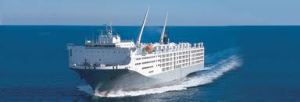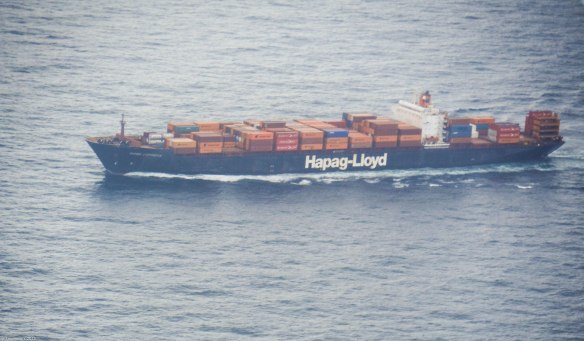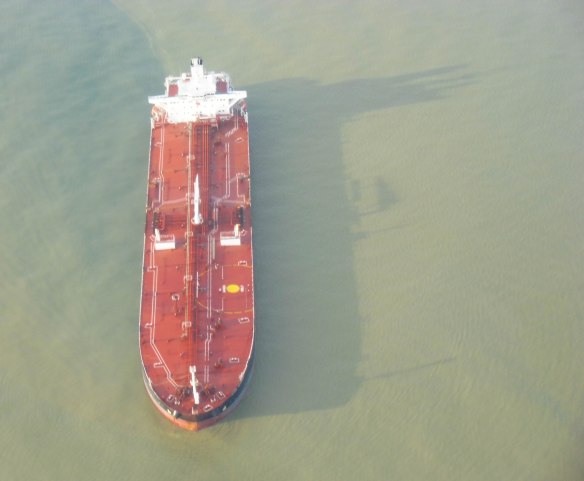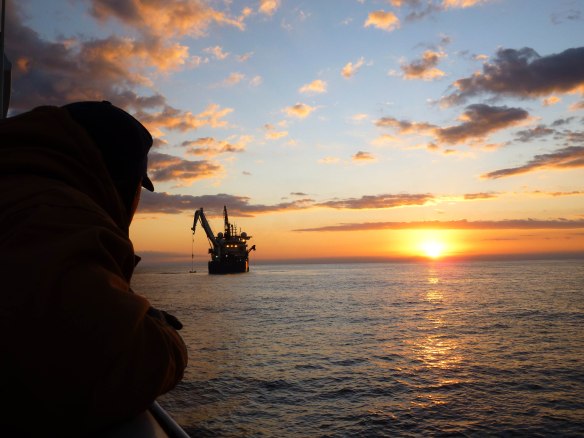gCaptain Maritime & Offshore News | Ever Wonder What It’s Like to Work On A Livestock Carrier?.
This is an interesting video (click the link). I got it in my email from gcaptain the other day. It’s just a short clip of the Master and the Chief Mate of the livestock carrier Ocean Drover explaining what it’s like to work on a ship like that.
What I thought was especially interesting was that both the Master and the Chief Mate were women. I was pleasantly surprised to see that. Especially since they were both Italian (and young).
I didn’t know that Italy had many women mariners. It’s a major accomplishment for anyone in any country to work your way up to that level. I was happy to see that these women made it. 🙂
I am REALLY hoping that the Maritime Labor Convention (MLC 2006) is not going to reverse all the progress we (women) have made over the last 50 years. I am already seeing some effects out here that make me wary.
The law of unintended consequences is raising it’s head again (IMHO). The last few ships I have been on have had issues with space. They constantly seem to run out of rooms.
I don’t know if it’s just poor planning or if they REALLY need all these people onboard, (we have almost 200 on here at the moment), but it seems they’re always having to finagle to get people a room onboard. They are trying hard to keep males and females separated. They also try hard to keep people working opposite tours in the same rooms so you’re not in there at the same time. Last hitch I had to move rooms 3 times in the space of 3 weeks!
The way this relates to the MLC 2006 is that apparently (I haven’t read the whole thing yet), there is a new rule that women and men can NOT share the same room! In the past, we have been able to share the same room (we are usually never in there at the same time), tho they usually did that as a last resort. We work on opposite schedules, so we never see each other.
Someone at the International Maritime Organization (IMO) seems to think that is a problem, so they fixed it. Problem now is that there just is not room onboard to keep dedicated female rooms. SO, to solve that issue (since there are still more men working offshore than women), they just send the women home.
This is the same excuse they used to use all the time back in the old days. Back then, it just was not true. They could have put us in any room and we just could have shared it with the men. Which is exactly what we used to do, IF we could manage to get onboard at all.
It was never really a problem for me personally (sharing rooms), tho I do have to comment that I have heard a lot of stories that make me just roll my eyes. I can’t believe some of the things some women have actually SUED over!! They have made it a HUGE big deal for any maritime company to hire ANY female (again!)!
I really wish people would just get their shit together and learn to treat each other with respect (men and women). Women who choose to work in the maritime industry need to learn how to deal with a little off-color language and grow a thick skin. It is not like working in an office building on the beach, and it should NOT be expected to be!
I’m sure I’ll be castigated by the politically correct nit-pickers of the world (thankfully most of them are still limited to the USA so I can still hope to escape them), but I am really getting sick of them ruining my (and ANY womans) chances of actually enjoying the lifestyle I have chosen for myself!
Now, the MLC has made male/female sharing a room (ever) against the law and so it is not going to happen any more. I can see a lot of women having a much harder time getting jobs in the maritime industry (again) because of this new rule. 🙁
So, instead of helping women, they hurt us (BADLY) instead!
I REALLY wish governments would just get out of the way and let us do our jobs!




